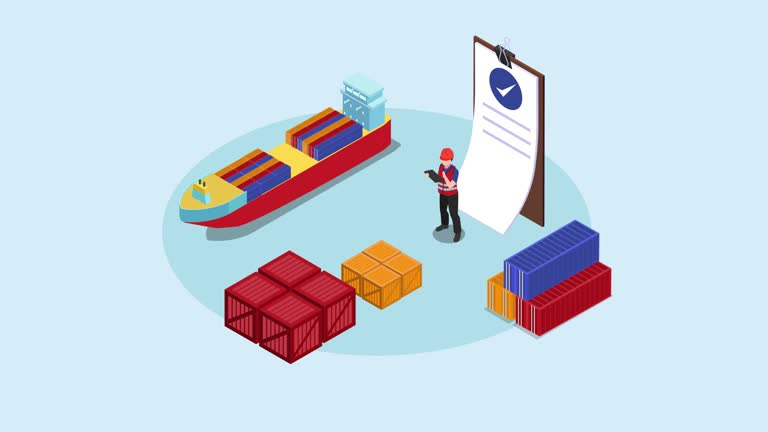If you’ve ever tried importing anything from another country, you probably know it’s not just a matter of clicking “buy now” and waiting for UPS to drop it at your doorstep. Nope. Customs forms, tariffs, local laws, and all that bureaucratic jazz can turn a simple transaction into a full-blown headache. That’s where an Importer of Record, or IOR, comes in. Basically, they’re like that friend who’s done the paperwork a million times and doesn’t freak out when customs decides to play hardball.
For businesses trying to expand globally, using an IOR isn’t just convenient — it’s almost a survival tactic. These companies take on the legal responsibility of importing goods into a country, handle taxes, duties, and even the messy bits nobody likes to think about. Honestly, it’s kind of like hiring someone to assemble IKEA furniture for you instead of staring at the instructions for hours, questioning all your life choices.
What Makes a Good IOR Company?
Not all IOR companies are created equal. Some are super tech-savvy, offering online dashboards where you can track every shipment like a hawk. Others rely on old-school spreadsheets and email chains — charming, but stressful if your shipment is stuck at customs. A solid IOR company should be flexible with different countries’ regulations, quick to respond to questions, and honest about hidden fees.
Also, a little transparency goes a long way. I’ve seen startups get absolutely blindsided by surprise customs duties, like when you order a “small” bookshelf online and UPS slaps on an extra $50 because apparently “small” is subjective. That’s why picking the right Importer of Record matters. For example, Importer of record services can take care of these nasty surprises so your business doesn’t collapse under paperwork stress.
Why Businesses Are Leaning on IOR Services More Than Ever
Social media chatter makes it clear — small businesses, especially e-commerce brands, are loving IOR services. On Reddit threads, Shopify forums, and LinkedIn posts, you’ll see people talking about how they can finally sell overseas without crying over customs forms. And it’s not just small brands; mid-sized and even larger companies are hopping on board because cross-border trade is booming, but the rules aren’t getting any simpler.
There’s also a weird psychological benefit. Having an IOR is like having an insurance policy for your shipments. You know something will probably go wrong at some point, and you’re okay with it because the professional handling it knows the dance steps. Honestly, it’s a relief, especially for first-timers.
Top Players in the IOR Space
Some IOR companies are practically legends in the cross-border trade world. They’ve been doing it for years, have slick tech interfaces, and can navigate tricky regulations with a wink. They can handle everything from consumer goods to electronics and even pharmaceuticals, which is not an area I’d personally trust to amateurs.
It’s also worth mentioning that some of these companies have niche specialties. For example, a company that’s great at shipping luxury fashion might not be your best bet if you’re importing industrial machinery. So, picking an IOR isn’t just about finding someone who exists; it’s about matching expertise to your goods. And yes, you can check out Importer of record if you want a company that handles a variety of goods without losing its mind.
Hidden Gems You Might Not Know About
A fun fact — not every IOR company is huge and corporate. Some smaller, nimble firms can actually move faster and offer more personalized service. You might get a dedicated account manager who responds faster than your friends’ DMs on Instagram. And in an era where every hour of delay costs money, that kind of responsiveness is gold.
Also, some IOR companies are quietly optimizing the tax and duty process, saving clients significant amounts of cash. It’s like going to a restaurant, ordering the same dish everyone else is getting, and somehow getting a better portion for the same price. Sounds magical, but it’s really just expertise.
Real-Life Lessons From Using an IOR
From personal experience, the biggest eye-opener is how much paperwork and legal responsibility an IOR actually absorbs. I once tried handling a small international shipment myself. Let’s just say, by the time I finished reading about customs codes, I had aged a solid five years and developed an existential dislike for forms. Hiring an IOR changed the game completely. Suddenly, the shipment was moving, I wasn’t losing sleep, and I could focus on running my business instead of stressing about whether my goods would get stuck at customs forever.
Conclusion – Why IORs Are Worth It
At the end of the day, an Importer of Record is more than just a service — it’s a sanity-saver for anyone dealing with cross-border trade. Whether you’re shipping tiny gadgets or huge pallets of inventory, using an Importer of record service keeps your business running smoothly without turning you into a paperwork hermit. It’s one of those unsung heroes in global commerce, quietly making the international business world less terrifying, one shipment at a time.




